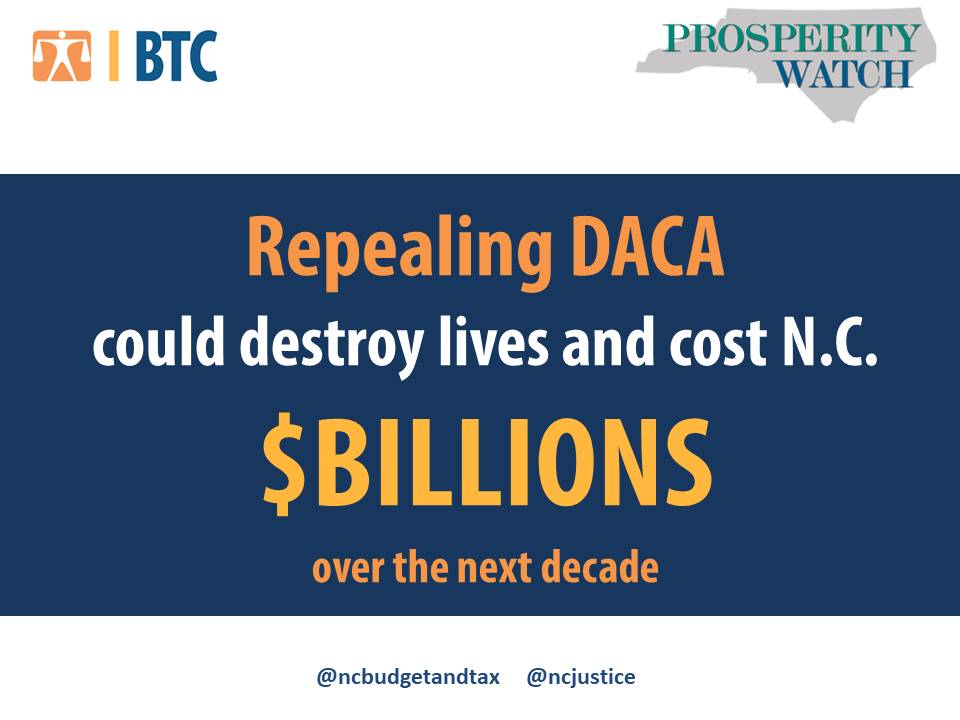Prosperity Watch, Issue 78, No. 1
Sept. 11, 2017
The Trump Administration’s announcement that it will end the Deferred Action for Childhood Arrivals (DACA) program throws hundreds of thousands of families’ lives into limbo, and could deal a serious blow to North Carolina’s economy.
DACA protects undocumented young people who were brought to the United States as children – widely known as “dreamers – from deportation. The program requires recipients to pass background tests, to be employed or in school, and to keep out of trouble with the law. Although dreamers enrolled in DACA work and pay taxes, they are prevented from receiving most federal subsidies for housing, healthcare, and other social supports.
There is a remarkably broad consensus among economists from a range of perspectives that ending DACA would be bad for North Carolina and the country as a whole. Analysis from the Center for American Progress and the CATO Institute agree that the cost of ending DACA without a viable replacement would likely surpass $1 billion a year in North Carolina alone.
The CATO Institute’s analysis is the most limited, looking only at the direct loss of worker and company income, and yet even that circumspect assessment shows North Carolina would lose $7.8 billion in economic activity (Gross Domestic Product) and $2.1 billion in tax revenue over the next decade. The economic model used by the Center for American Progress additionally accounts for the lost productivity as companies scramble to replace the dreamers that they currently employ, which could push the yearly economic loss to nearly $1.2 billion.
As dramatic as these estimated impacts sound, the real economic cost of ending DACA without a replacement is likely far higher. First, these studies only look at the next 10 years, when today’s DACA recipients are still at the beginnings of their professional lives. The cost of losing DACA recipients will almost certainly grow, as this group of skilled young people would have been developing into the next generation of business leaders and entrepreneurs. Second, neither study estimates the economic consequences of losing tens of thousands of customers, which would depress demand for consumer goods and services.
Finally, neither study contemplates the long-term cost of the United States losing its standing as a leader in global commerce and a desired, welcoming destination for aspiring people the world-over. Some of these effects are extremely difficult to estimate with any confidence (which is why they have not been included in the reports referenced above), but they are practical realities that could push the real economic cost of DACA far higher than what has been projected to date.
It’s important to recognize that the hurt will not just fall on DACA recipients and their families; it will harm people and communities across the state. North Carolina companies will likely be unable to deliver on existing contracts or aggressively pursue new work, which can endanger their entire workforce, immigrant and native-born alike. We stand to lose thousands of talented young people who would otherwise start new businesses in North Carolina, help the state to attract new companies, and continue to make our economy more globally competitive, all losses that will be felt far beyond the immigrant community. And worst yet, we are losing thousands of North Carolinians – regardless of their individual economic impact – who have built lives in our state and become integral members of our communities. Even as we evaluate the economic impact, we must not forget the human one as well.
 Justice Circle
Justice Circle 
